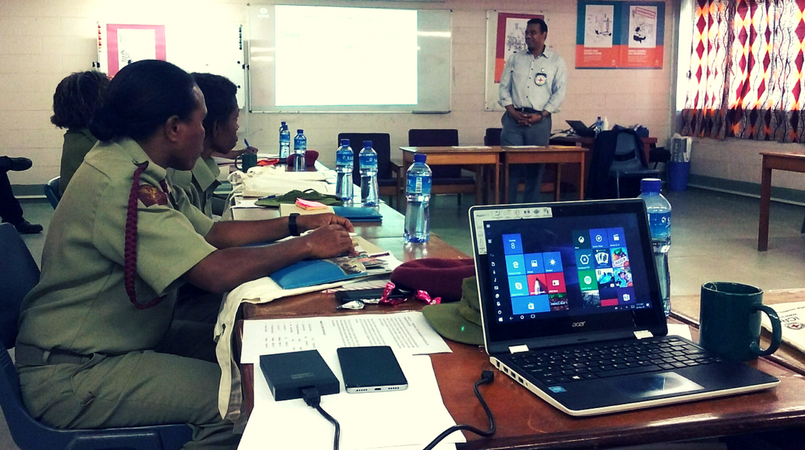
Correctional Service Health workers are undergoing a refresher course to help them deal with detainees’ health better in their respective jails around the country.
Facilitated by the International Committee of the Red Cross (ICRC), the training has been prepared according to the assessment conducted at workplaces on the performances of health workers during their duties.
It has been identified that many of the procedure and practices conducted by health workers in prison do not meet health standards and the PNG Correctional Service is fortunate to have a detention doctor from ICRC facilitate a training on detainee in detention treatment and care.
Ten Correctional Service Health workers from Bomana, Giligili, Daru, Mendi, Goroka, Boram, Buimo, Beon and Vanimo are undergoing the training this week in Port Moresby.
A biannual training will cover areas of mental health, psychiatric treatment and care, gender issues, health assessment and clinical record keeping of inmates, infection control on communicable diseases and basic first aid.
The area of psychiatric care training is crucial for the Correctional Service management in preparing the health workers to deal with detainees with special needs.
Currently prisons around the country only have Health Extension Officers and nursing officers employed as health workers in the Correctional Service.
CS Assistant Commissioner personal finance and administration, Michael Mosiri, said the CS lacks expertise in the area of psychiatric care.
“Right now we have only one officer at Bomana who has been trained in that area. We don’t have facilities at the institute to deal with the psychiatric inmates at the prisons,” Mosiri said.
Dr Shawar Hussain said detainees are human beings and need to be treated with dignity.
“Usually ICRC, mentally sick detainees should not be treated inside place of detention. What we want to highlight in this workshop is health workers to increase their capacity to identify who is mentally sick.
“What are the signs, symptoms that will lead them to decide who is a mentally sick detainee and who should be transferred to a specialised psychiatrist?”
Access to health care for detainees without barriers or discrimination is among activities the ICRC has high on its agenda.
It believes detainees have lost their freedom, not their right to health and there should be no barriers to getting medical treatment.
Protection activities ICRC carries out include assist prisoners re-connect lost links between detainees and families in the communities by bringing families of detainees to visit them.
